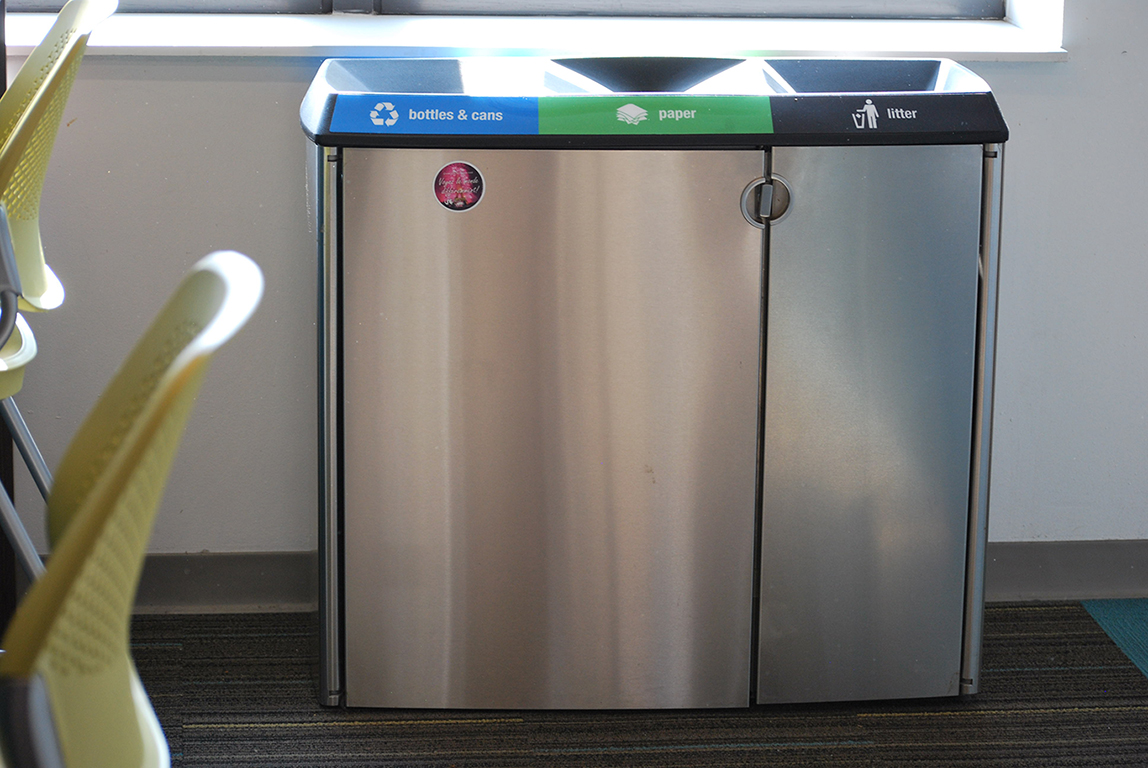
Recycling is something that I never paid much attention to before I became a college student, but after living in The Summit and now Chestnut Square, I’ve noticed that recycling is something that some people need to be more conscious of.
There are two large recycling bins in the trash room on my floor, and every time I see them, they have several items in them that aren’t recyclable. This always confuses me because the trash chute is literally one step away. I’m not sure if some people just don’t know what is recyclable and what isn’t, or if they simply don’t care.
The HuffPost put out an article in 2016 titled “The Psychology Behind Why People Don’t Recycle,” which highlighted eight different reasons as to why people don’t recycle. While 25 percent of respondents said recycling wasn’t accessible or convenient where they live, only one percent of respondents said they do not understand its environmental benefits. Moreover, six percent of them weren’t sure of what is recyclable and what isn’t, which didn’t surprise me because most things that are recyclable (such as water bottles, soda cans, milk containers and other items) will have the triangular recycling symbol or the words “please recycle” somewhere on them.
I didn’t think that inaccessibility would be the reason why some people in Chestnut Square doesn’t recycle, so I decided to ask some of my friends if they recycle, and if they don’t, then why not. The most common response that I got from the small number of people I consulted was that they always forget. I figured that this would be the most likely response, as I also simply forget sometimes.
Another issue that I think people have when it comes to recycling is the assumption that something can be recycled with everything else just because it is made of a certain material. The most common example of this is with plastic bags. There have been many times where I have gone to the trash room and seen plastic bags in the recycling bin along with cans, bottles, and other recyclable items. Unfortunately, even though they are made of plastic, plastic bags can’t go in the recycling bin.
Plastic bags have to be collected separately from most other materials, but most locations don’t have a recycle bin specifically for plastic bags. Fresh Grocer at 40th and Walnut streets has a spot in the lobby by the elevators where plastic bags can be placed to be recycled, so if you live near there and have bags that need to be recycled, that is the place to go.
However, for those of us living in Chestnut Square, there isn’t a Fresh Grocer close to us, and I am certainly not going to walk to 40th Street every time I need to recycle plastic bags. Instead, I’ve found that, rather than recycling them, using all the plastic bags that I get from trips to Old Nelson and CVS as trash bags is a good alternative to throwing them in with all the other recyclable items. The reason for this is because putting them in the recycling bin would ruin all the other recyclable items in the bin. This is called recycling contamination, which is described in an article on Rubicon that was written by Vice President of Sustainability David Rachelson.
“In short, recycling contamination is when incorrect items/materials are put into the system or when the right items/materials are prepared in the wrong way (i.e., food residue in containers, recyclables in plastic bags, etc,.)” the article delineates.
So, while on the surface it may seem like a small thing to include a plastic bag in the recycling bin in our trash room, the reality is that it has a negative impact on recycling.
People simply need to try and be more conscious when it comes to recycling and disposing of their trash. There are even some classrooms on campus that have three bins in them: one for recycling plastic, one for recycling glass and one for regular trash. The environment benefits greatly from proper recycling, so taking the extra steps to do a bit of research on how to recycle properly and then putting that knowledge into practice repeatedly will ultimately be for the benefit of everyone.
